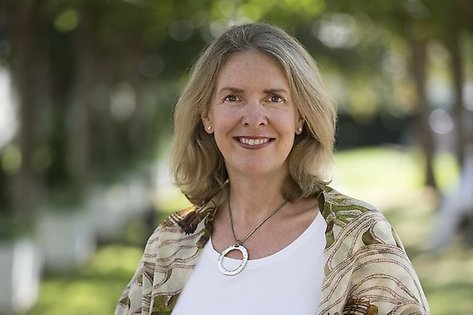Physical activity as a win for health, win for society and win for the planet - Interview with keynote Dr. Fiona Bull, WHO
It has been a busy year for Dr. Bull and her team following the High-Level Meeting in the UN General Assembly in 2018 where world leaders committed to bold actions to reduce NCD’s through a global action plan. To help countries progress, WHO is now updating and developing new guidelines for physical exercise across the lifespan.

Dr. Fiona Bull is Programme Manager for Surveillance and Population-Based Prevention of Non-Communicable Diseases (NCD) at WHO.
Why is this revision necessary?
The guidelines for children and adolescents were set in 2010, but given that science continues to advance every year, it is time to review the evidence and incorporate new knowledge to inform how much, and what type of physical activity children need to improve their physical, social and mental health and development. For example, there is so much more known now about the mental benefits of physical exercise, and its consequences on health, both in young people and also in later life”, says Dr. Fiona Bull, Programme manager, WHO.
Is there an age-group that you are particularly concerned about?
For all age-groups in fact, we are concerned that the levels of inactivity are very high and in many countries increasing. Globally, 80% of adolescents do not meet the WHO guidelines of 60 minutes of accumulated movement per day. Activity is typically higher in the younger years with a significant drop-off in the adolescent period and lots of national data point to this same sharp decline around the age of 13-16 years. Currently, we don’t have such good data on physical activity in the under 10’s, but where it is available, there is also some concern, and what we know about levels of activity in children under 5 years, with their increasingly sedentary behavior, is also worrying”, says Dr. Fiona Bull.
The most recent new set of guidelines were launched a couple of weeks ago providing recommendations for physical activity, sedentary behavior such as screen-time and sleep for children under 5 years of age. The report received a lot of attention by the media, was this response expected?
There was an overwhelming response from media and we are of course delighted and hope this means that countries will take on our recommendations. It didn’t come as a surprise though; Parents have been calling for this kind of guidance about screen-time in particular, says Dr. Bull.
In his remarks at the at the WHO Global Conference on Noncommunicable Diseases, WHO Director General, Dr Tedros Adhanom Ghebreyesus called the NCD epidemic a “horror story playing out before our very eyes”. What can Governments do to overturn this worrying trend?
The new global action plan for physical activity 2018-2030 helps countries to identify and scale up effective and feasible policy actions in four different policy areas. The first one is about public awareness and communication campaigns aimed at helping people realize that being active is for everyone, every day, and not just something you could do, or think of it as something I could start when I am older…campaigns are important to help communities be aware of the life-long benefits of regular physical activity. The second policy area focused on the environment and creating the safe places and spaces to needed for physical exercise – the theme of this conference. The third policy area is about actions aimed at creating more opportunities to be active through programs for active recreation and play, sports for all, at the workplace and in the community. Lastly, the fourth policy area addresses the need for good governance, policy, surveillance, research and resources. Taken together, the four policy areas represent a whole of community or whole ‘systems-approach’ to supporting people to be more active", says Fiona Bull.
At Uppsala Health Summit, we will focus on the urban planning aspect, of how to create the safe places and spaces children need for healthy development. What are the some of the main messages to bring about change around this agenda?
Well clearly, it is not enough to just talk about the health risks of being inactive, we need to broaden the arguments and look at the many benefits of societies being more active – this will show to a wider audience their role in helping create cities that are built in ways to encourage and support safe walking, cycling, sport, exercise and outdoor play.
Typically, designs that enable us to be active also lead to benefits for the environment, the economy and the community. When cities are planned for walking and cycling, we use less fossil fuel, it also supports cohesion in the community, as it can reduce social isolation and facilitate integration that leads to safer communities. Local business and tourism can also be stimulated as we see in cities like Barcelona and New York City.
Overall, many studies and analyses show it makes sense and is a win for the city, win for business, win for communities, a win for the environment, and a win for health", says Dr. Fiona Bull.
What are you looking forward to at Uppsala Health Summit 2019
I am looking forward to the meeting with its focus on city design and opportunities to discuss with diverse audience from around the world, the challenges of creating places that support children to be active throughout their childhood and go on to be active citizens. Places where families can be active and where health, environment and communities are put first to make the places we want to live in", says Fiona Bull.
